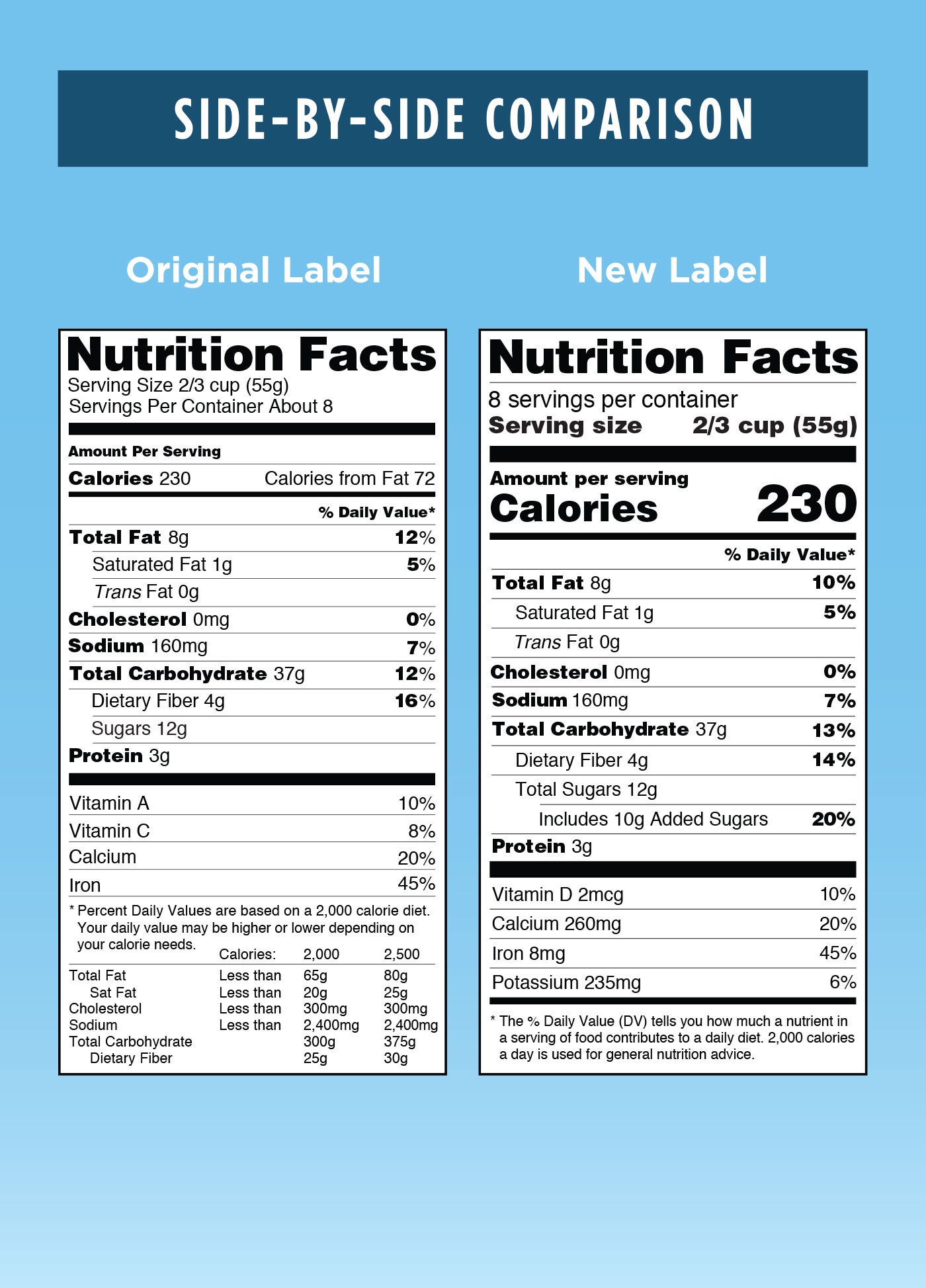Starting next year, most nutrition labels on food packaging will be updated to be more clear about calories, portion sizes and added sugar. The move by the U.S. Food and Drug Administration was in response to research that people weren’t paying attention to the labels because they had to use too much math to make sense of them.
A new research paper by an Arizona State University professor who used eye-tracking software in a study found that consumers spent less time looking at the new labels compared with the old.
Carola Grebitus, an associate professor of food industry management in the Morrison School of Agribusiness, wanted to see if the new, bolder labels — with calories in larger type — would make up for people’s lack of math skills.
“What we found is that people who aren’t as good at math can use it better — that’s the key result,” she said.
Grebitus said she started studying nutrition labels when she was in college.
“When I looked at the papers then, one of the key results was that people don’t use the nutrition facts panels because they can’t do the math,” she said.
“Back in the day, the labels didn’t have serving sizes or how many servings in a package so you had to calculate. I remember how annoyed I would be because it was, ‘OK, this is the calories per 100 grams but just tell me how many calories are in one slice of cheese.’”
Grebitus’ new study, published in Agricultural Economics, asked 115 subjects to rate their own numeracy — or math skills.
“When you think about the fact that just not being good at math puts you at a disadvantage for using nutrition labels to make healthy food choices, that’s not good,” she said.
The research participants sat in front of a desktop computer and saw images of eight products on the screen. Half the study subjects saw products with the old labels and half saw products with the new labels. At the bottom of the screen was a black bar eye tracker that recorded the movement of their pupils.
“The eye tracker tested how long people would pay attention to the Nutrition Facts Panel, especially the calories per serving and serving size,” she said.
Overall, the whole group spent 0.6 seconds less on the new labels, which the researchers interpreted to mean that the revised information was clearer and needed less time to process. There were no attention differences based on numeracy for the new label.
“We interpret the findings is that the new labels are improved, especially for people who have lesser numeracy skills, which would be the people we would want to support the most.”
However, many participants still ignored the information altogether, Grebitus and her co-author, George Davis, a professor at Virginia Tech University, pointed out in their paper, which was published in Agricultural Economics.
“An effective label can decrease visit duration, however, an effective label should also be 'catchy' in the sense that it attracts attention. Ignoring the label means that this goal is not achieved,” they wrote in the article.
The FDA began redesigning the nutrition facts panels in 2016. The new labels will be required on food packaging starting Jan. 1, 2020. Smaller food companies have until 2021 to switch to the new labels. Many manufacturers have already made the switch.
Top image by Pixabay
More Health and medicine
New Indigenous health dashboard offers robust database for scholars
By Nicole Greason and Kimberly Linn A team at Arizona State University’s College of Health Solutions and American Indian Studies program has created a new tool to aid researchers…
College of Health Solutions program doing its part during Salute to Service
It wasn’t always easy for Marine veteran Chuck Hale when he first returned to civilian life. But he’ll never forget the help he received from a fellow former service member.“The first vet that helped…

What makes human culture unique?
Why is human culture — the shared body of knowledge passed down across generations — so much more powerful than animal cultures?“What’s special about our species?” is a question scientists have…

